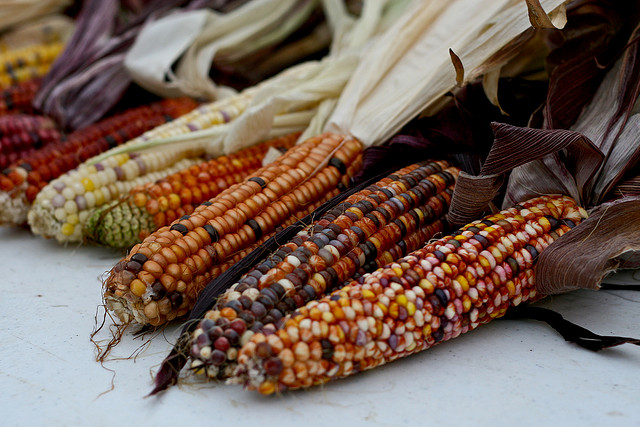Amidst apprehensions surrounding the embrace of Genetically Modified Crops in Nigeria, the federal government granted approval in January for the commercial planting of four “Tela maize” varieties. This decision positioned Nigeria as the second African nation, after South Africa, to adopt and commercialize these “T maize” varieties, as highlighted in a February report by the United States Department of Agriculture and the Global Agricultural Information Network (GAIN). “Alongside South Africa, Nigeria has emerged as the second African country to authorize the commercialization of genetically engineered corn,” the report affirmed.
Tela maize, genetically engineered for enhanced insect resistance and drought tolerance, aims to bolster farmers’ yields per hectare and address prevailing demand shortages in the agricultural sector.
For the past decade, the adoption of Genetically Modified Organisms (GMOs), commonly known as GM seeds, by crop farmers has sparked heated debates among scientists, environmentalists, and food activists both in Nigeria and worldwide. The pivotal question of the role GMOs should play in addressing agricultural, nutritional, and climatic challenges in developing nations like Nigeria has been a central focus of these discussions.
Concerns have arisen regarding the environmental and health ramifications of GMOs, their impact on traditional farming practices, and issues surrounding seed patents. Governments in developing countries are addressing these concerns in various ways, ranging from outright bans on GMOs to full embrace of the technology, with some striving to strike a balance between competing interests.
According to the International Service for the Acquisition of Agri-biotech Applications (ISAAA), at least 33 major food crops have undergone genetic modification globally. Among these, maize, cowpea, cotton, and soybean have received official approval for commercialization by Nigerian authorities, placing Nigeria among the six leading African countries in biotech crop adoption.
The approval of Tela maize as the latest GM variety for commercial planting in Nigeria underscores this trend. Proponents argue that planting GM seeds can expedite food production, thereby enhancing global food security. Conversely, some experts contend that food productivity can be augmented through natural methods.
It has been observed that farmers cultivating GM crop varieties across various communities in Nigeria lack sufficient knowledge to make well-informed decisions.
Regarding the potential of Tela maize, a report by the USDA highlighted that Nigeria produced an estimated 12.7 million metric tons (MMT) of corn in the marketing year 2022/2023, with an average yield of 2.2 tons per hectare. However, the adoption of new maize varieties could substantially boost the country’s production capacity.
According to the African Agriculture Technology Foundation (AATF), under optimal agronomic practices, yields of Tela maize could reach up to 10 tons per hectare, as outlined in the report.
It was reported that on 11 January, Nigerian authorities officially commercialized Tela maize varieties following an announcement by the Nigeria National Committee on Naming, Registration, and Release of Crop Varieties, Livestock Breeds/Fisheries. The committee approved twenty-three new GM varieties for commercial planting, including four biotech Tela maize varieties. Consequently, seed companies can obtain licenses to produce and commercialize the new Tela maize hybrids under their private brand from AATF.
Furthermore, the AATF clarified that the approved varieties are owned by the respective institutions that developed them, including national government research organizations, and will be licensed to local seed companies royalty-free through the AATF.
According to the report, the Tela Maize Project was initially named the Water Efficient Maize for Africa Project, with Nigeria joining in 2019.
The project aimed to develop a high-yielding maize variety resistant to drought, amidst the challenges posed by climate change, and also resilient against the Fall ArmyWorm pest (FAW), which devastated numerous corn fields across Nigeria in 2016. Studies suggest that FAW can diminish corn production in affected areas by 20 to 50 percent if not adequately controlled, leading to increased production costs due to heightened labor and pesticide applications.
The process toward adopting Tela maize in Nigeria commenced in 2021 after the National Biosafety Management Agency (NBMA) approved the environmental release and field trials of maize varieties categorized as SAMMAZ 72T, SAMMAZ 73T, SAMMAZ 74T, and SAMMAZ 75T. Nigeria’s Institute for Agricultural Research conducted national performance trials of these varieties across ten states with diverse agroecological conditions, with reported average yields reaching 3 tons per hectare.
Controversies arose surrounding the adoption of Tela maize, particularly among anti-GMO groups in Nigeria, including the environmental think-tank Health of Mother Earth Foundation (HOMEF) and others. They issued a joint statement condemning GMO adoption in the country, expressing disappointment over the release of genetically modified varieties. They highlighted the absence of evidence of a risk assessment conducted before the release of Tela maize on the websites of the NBMA or the Biosafety Clearing House of the United Nations Convention on Biodiversity.
HOMEF’s Executive Director, Nnimmo Bassey, criticized the lack of independent, long-term assessments on the impacts of GMOs on human and environmental health, citing concerns about cancers, diseases, allergies, and environmental degradation associated with genetic modification crops.
Bassey emphasized the necessity for the government to conduct independent long-term feeding tests and environmental/biodiversity assessments before approving any GM crop, urging the swift withdrawal of Tela maize.
However, according to a statement from the NBMA, Tela maize has not yet been launched in the country, emphasizing their commitment to thorough scrutiny and due diligence. The Director-general of the agency, Agnes Asagbra, described Tela maize as rigorously evaluated through risk assessments and regulatory processes before its approval.
She highlighted that the GM crops approved underwent thorough evaluation by Nigerian scientists, who are seasoned professionals with extensive experience and expertise in their respective fields.
“Their assessments are meticulous, ensuring that only safe and beneficial technologies reach our farmers and consumers,” she affirmed.
She underscored the significance of the country’s biosafety law in the pursuit of Nigeria’s food security goals.
“Biosafety is not merely a policy; it signifies a commitment to safeguarding our nation’s health, biodiversity, and environment. By regulating modern biotechnology activities, biosafety ensures that technological advancements, particularly in agriculture, are advantageous and pose no harm to our people or our land,” the agency emphasized.
Mrs. Asagbra encouraged Nigerians to embrace safe modern biotechnology advancements with informed perspectives.
“Let us have faith in the rigorous processes established to protect us all. Together, we can progress towards a future where food security, environmental sustainability, and economic growth are intertwined,” she expressed.
Expert Perspectives.
In response, the Executive Director of the Nigerian Stored Products Research Institute (NSPRI), Lateef Sanni, emphasized Nigeria’s potential to produce a variety of agricultural products with high yields if research receives due attention.
As a Professor of Food Science and Technology, Mr. Sanni stressed that Nigeria cannot indefinitely rely on breeders from other regions for hybrid seeds. He argued that the country’s food situation, global acceptance of genetically modified foods, and the imperative for environmental sustainability indicate that Nigerian farmers should consider adopting Tela Maize for cultivation.
However, Mr. Sanni cautioned against viewing this as a permanent solution to securing maize breeds with high yields. He urged breeders to step up and called for government, private sector, and farmer support to develop quality seeds that guarantee abundant harvests.
Qrisstuberg Amua, Executive Director of the Centre for Food Safety and Agricultural Research, expressed citizens’ concerns regarding the adoption of Tela maize in the country.
In an interview wit on Monday, Mr. Amua emphasized that both citizens and political and economic leaders have significant concerns about this development.
He outlined reasons for citizens’ worries about the new maize varieties, citing health implications and insufficient information about the maize. Mr. Amua highlighted the diverse negative health effects of GMOs, including cancers resulting from disruptions to hormonal or endocrine and immune systems, fertility sterilizations, metabolic disorders, cardiovascular disruptions, childhood obesity, autism, attention deficit hyperactivity disorders, mental health disorders, and early memory decline (dementia) in individuals over 40 years old.
Mr. Amua stressed that adverse health effects could arise from genetic modifications of organisms involving recombinant splicing of DNA or using CRISPR technology.
Moreover, he noted that GMOs like “Roundup Ready” varieties, engineered to tolerate pesticides like glyphosate, pose additional health risks due to increased pesticide use. These pesticides, Mr. Amua explained, persist in the environment, accumulate in the food chain, and contribute to the rise of non-communicable diseases like diabetes, cancer, hypertension, and arthritis.
Furthermore, Mr. Amua highlighted adverse implications of GMO adoption for food production systems and biodiversity, as it promotes monocropping and threatens organic and indigenous seed varieties. He warned about economic and strategic security risks when foreign multinationals control food supplies through patented GMOs.
Mr. Amua urged Nigerians to reject GMOs and advocate for policy changes to prevent their cultivation, distribution, and consumption. He emphasized the importance of educating communities and promoting the consumption of wholesome organic and indigenous foods free from genetic modification.





